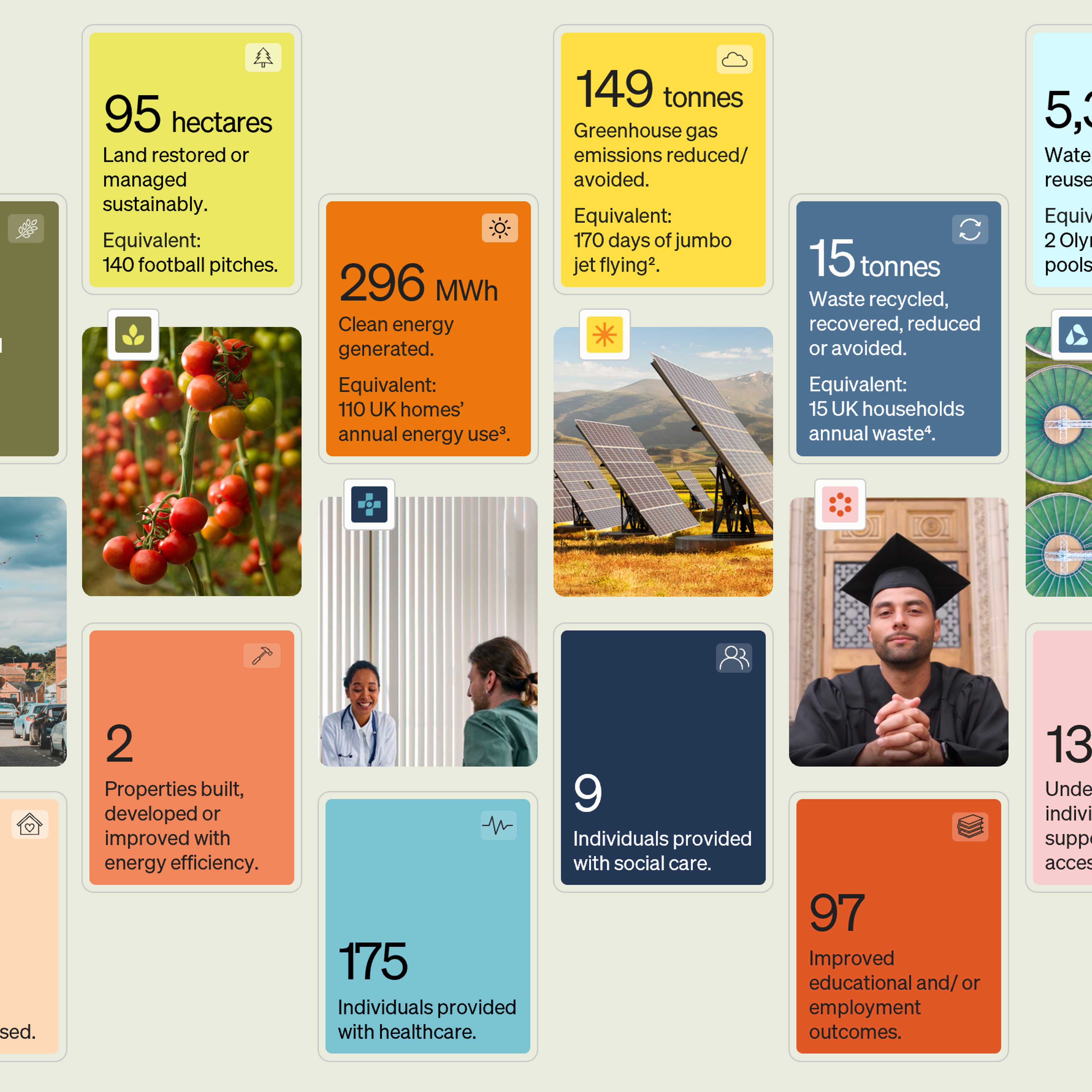Snowball Outlook 2024: the odds are tipping in favour of investment with the future priced in

Sean Farrell, CIO, Snowball
Tue 6 February 2024

The odds are tipping in favour of investment with the future priced in
The world of finance is still underestimating what happens to our economy after 1.5 degrees of warming (see references below). In parallel, advisors and analysts continue to assume target returns which ignore the risks posed by unaddressed social inequality.
But we see a shift coming this year. Several major institutions closed out 2023 by sounding the warning bell that the investment industry has dramatically underestimated risk. And with eight of 10 of the world’s most populous countries among the 70+ states holding elections this year, 2024 could prove pivotal for the pace and progress of environmental and social change. In 2024, more people will recognise that all investments have an impact, whether this is intentional or filed under ‘externalities’. To date, those who have sought to measure and manage these impacts have been burdened with a reputation for idealistic naiveté.
But a counter argument is starting to take hold that investors – and asset managers – who think about impact are in fact realists: engaging with the real world by recognising that investments are not just numbers in spreadsheets, but real things that affect real societies and lives. We’re seeing daily examples of investors who are taking a more sophisticated approach which integrates impact, alongside risk and return.
The big risks that will cause permanent loss of capital are not being paid enough attention to. As more investors start to price these risks in, the adjustment in asset prices can be dramatic and painful. The converse applies for investments that are aligned with positive solutions to these challenges, leading to a wholesale rethink of the financial term “risk-adjusted”.
Pension savers will demand more access to impact
In the same way that the pandemic spawned a cohort of amateur epidemiologists, climate change and its resultant humanitarian crises have become severe and tangible enough that its potential solutions are the stuff of pub conversations.
We anticipate that in 2024 savers will begin to put pressure on institutions – especially pension funds – to divest away from assets that harm the planet and explore those that create positive impact. Olivia Colman’s viral advertisement for the Make My Money Matter campaign resonated with people who want faster progress on this. With people’s awareness of the power of their money rising, ESG investing will not answer the demand as many investors look under the bonnet of self-badged “sustainable” investments to find banks, big tech companies and even fossil fuel producers rather than businesses that have a clear positive impact on the planet and society. Investors are asking how they can use their capital to back solutions for the problems facing us whilst still earning attractive returns – answers are coming through vehicles which will allow retail investors access to the deeper impact and aligned returns which can be achieved in private markets.
Research repeatedly shows that while most of us are eager to take action on climate change, we struggle to know how. Changing the way we invest via our pensions and ISAs is a win-win given it is possible to achieve positive impact at the same time as growing wealth.
The investment sector will step up, as government balance sheets run out of headroom
The end of nearly a decade and a half of near-zero interest rates will collide with a massive need for new investment in transition finance around the world.
Governments, having stretched their financial capacities to the limit during Covid, now face the dual challenges of a demographic time bomb and higher funding costs. This limits their ability to stimulate investment or intervene in the event of a market downturn. As working-age populations decline, they are being confronted with tough questions regarding meeting retirement and healthcare obligations.
The traditional reliance on government bonds as a secure asset in portfolio construction and as a foundation for the financial system faces long-term uncertainties. When coupled with other unaccounted-for challenges in mainstream investments, the potential repercussions for investors holding legacy or traditional portfolios could be profound (in a bad way) and it certainly doesn’t seem prudent to bury one’s head in the sand and leave one’s future financial wellbeing solely dependent on these investments when such profound environmental, social and technological changes are being unleashed.
The strategy for navigating this evolving landscape in 2024 involves risk mitigation through diversification and a proactive consideration of longer-term issues. As time progresses without adequate responses, these challenges escalate, posing increasing actual risks not only to portfolios but, more crucially, to people and the planet - but it's not all bad news for investors as those targeting “profitable solutions” can not only mitigate risks to their portfolios but actually benefit whilst having a positive impact.
References and source material.
Institute and Faculty of Actuaries, The Emperor’s New Climate Scenarios Limitations and assumptions of commonly used climate-change scenarios in financial services.
The Financial Stability Board, Current climate scenario analysis exercises may understate climate exposures and vulnerabilities.
The UK Pensions Regulator, raises concerns over scenario impacts that “seem relatively benign and appears to be at odds with established science”.
The Institute for Economics and Peace, More than 1 billion people face being displaced within 30 years.
Carbon Tracker, The Climate Risk Delusion: Under-pricing climate risk contributes to climate change itself, and puts global pension wealth in peril.
Chatham House, Climate change set to cause next economic mega-shock.
GIC Private Limited, Investors “may be surprised by the underperformance’” of the hypothetical portfolio.
Nature Climate Change, Unpriced climate risk and the potential consequences of overvaluation in US housing markets.
Shropshire County Pension Fund, climate-related disclosures reported that its annualised portfolio returns would be hit by only 0.1 per cent over 30 years, despite climate science evidence of the destruction which will be caused by warming at current rate.
University College London professor Steve Keen has warned [the economic shock resulting from climate change] will be “unpleasant, abrupt and wealth-destroying”.


